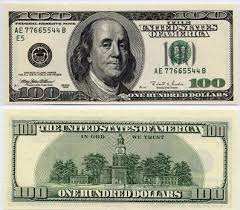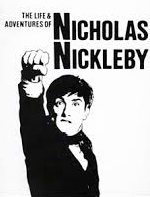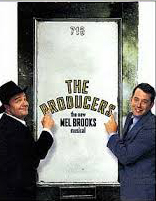
Empty display cases at the Longacre Theatre (Photo by Howard Sherman)
The fact that Nerds, a musical about Bill Gates and Steve Jobs which has been in development for a decade, cancelled its Broadway run less than a month before its first preview, shouldn’t be entirely shocking. After all, the marquee of the Longacre Theatre, where it was to begin performances, still carried the logo for Allegiance, the musical that closed there in February. At 5 pm on March 8, the day of the announced cancellation, the lighted display cases on the front of the building were empty and dark.
By the same token, the box office lobby was crammed full of equipment boxes for the show’s load-in. The cast was already in rehearsal. Presumably there was a nearly finished set somewhere, costumes on racks, and so on.
 What happened to Nerds seems to happen every so often, but it’s one of the lesser discussed examples of a show going awry on Broadway. It doesn’t have the ignominy of closing immediately after its opening night (like the musical Glory Days) or the gossip page-worthiness of shutting down in previews (like the Farrah Fawcett vehicle Bobbi Boland). It’s not a case of a show that announced plans to happen, but never really came together, like Pump Boys and Dinettes did two years ago.
What happened to Nerds seems to happen every so often, but it’s one of the lesser discussed examples of a show going awry on Broadway. It doesn’t have the ignominy of closing immediately after its opening night (like the musical Glory Days) or the gossip page-worthiness of shutting down in previews (like the Farrah Fawcett vehicle Bobbi Boland). It’s not a case of a show that announced plans to happen, but never really came together, like Pump Boys and Dinettes did two years ago.
It’s not a saga like the cursed, headline-making musical Rebecca, twice underway and twice cancelled, with a con artist posing as the representative of a fictional investor behind its undoing. Because Nerds never began performances, it will never enter any of the history books or databases that would preserve its brush with Broadway.
Nerds was simply a lower profile show that, like a number before it, couldn’t survive the withdrawal of a key investor late in the game – or at least it stated that was the reason. The same thing happened to a revival of Godspell in 2008, although that one managed to get on three years later, with much of the same creative team and even a few of the same cast, albeit under the aegis of a different producer. But that’s more the exception.
The fate of Nerds is a reminder that for all of the bullish words about Broadway’s health – highest attendance! highest revenue! – many of the shows that get there may be doing so while playing a game of brinksmanship, racing the clock to get in the entire capitalisation by the legally mandated deadline. After all, if shows feature 10, 15, even 20 producers above the title, how many individual investors stand behind them, to make up budgets that can now be $4 million for a play, and in some cases four times that for a musical?
With Nerds, there are people who have suddenly been put out of work with no warning, there are people on the hook for expenses for a show that had its last full performance for a small invited audience on Wednesday in its rehearsal hall, there are creators whose dreams have been dashed. Nerds may quickly fade from the memories of the relatively few who were familiar with it, and it joins a list of other shows to meet the same fate. But it’s also an important reminder – in the era of juggernauts from The Phantom of The Opera and The Lion King to The Book of Mormon and Hamilton – of how many pieces have to come together to make a show a success, and just how fragile a new production can be.
 It’s a funny thing about milestones, the way certain thresholds get set in our minds. If you follow reporting on the movie industry, breaking the $100 million gross barrier is a major achievement (and for those of us in the arts, an astronomical figure), although its not always connected to the cost of the film under discussion. But that number has been a yardstick for years, once cause for double page ads in Variety whenever it was reached, regardless of whether the movie that achieved it was released in the 60s, 70s, 80s or today – despite inflation making the success happen a little faster with every passing year. To be sure, plenty of movies still don’t make it, but it’s a less rarified club than it was in the days of The Sound of Music or Star Wars.
It’s a funny thing about milestones, the way certain thresholds get set in our minds. If you follow reporting on the movie industry, breaking the $100 million gross barrier is a major achievement (and for those of us in the arts, an astronomical figure), although its not always connected to the cost of the film under discussion. But that number has been a yardstick for years, once cause for double page ads in Variety whenever it was reached, regardless of whether the movie that achieved it was released in the 60s, 70s, 80s or today – despite inflation making the success happen a little faster with every passing year. To be sure, plenty of movies still don’t make it, but it’s a less rarified club than it was in the days of The Sound of Music or Star Wars.
Once upon a time, when people still spoke of the price of a loaf of bread as an economic indicator, gas prices crossed a big threshold when a gallon broke over the $1.00 price point. People under 40 may not even remember this being breached. This was a big deal in those non-digital days, when prices couldn’t simply be altered with a tiny bit typing; I happened to be in England a few years back when the price of a liter of petrol broke the £1 mark, resulting in some creative solutions to signage that never anticipated announcing such a sum.
 In theatre, in my lifetime, the big round number that sticks in my memory was the $100 ticket for The Life and Adventures of Nicholas Nickleby, though it could be explained away by the massive physical production, cast size and length. It seemed a one-off as opposed to a trend-setter. Miss Saigon had $100 tickets at the start of its run, but didn’t sustain them, dropping back to the then more typical $65. The $100 price cropped up again for the 1999 revival of The Iceman Cometh, which by virtue of its length, simply couldn’t give enough performances in a week to make economic sense otherwise. You may know of other isolated instances.
In theatre, in my lifetime, the big round number that sticks in my memory was the $100 ticket for The Life and Adventures of Nicholas Nickleby, though it could be explained away by the massive physical production, cast size and length. It seemed a one-off as opposed to a trend-setter. Miss Saigon had $100 tickets at the start of its run, but didn’t sustain them, dropping back to the then more typical $65. The $100 price cropped up again for the 1999 revival of The Iceman Cometh, which by virtue of its length, simply couldn’t give enough performances in a week to make economic sense otherwise. You may know of other isolated instances.
 We didn’t truly reach the $100 asking price per ticket milestone until The Producers introduced the $100 ticket in the wake of rave reviews, also giving us the innovation of the VIP ticket at the extraordinary price of $480. This was in 2001, just 13 years ago. At the time, other hits were quick to match The Producers, with Mamma Mia! jumping to $100 per ticket just two months later.
We didn’t truly reach the $100 asking price per ticket milestone until The Producers introduced the $100 ticket in the wake of rave reviews, also giving us the innovation of the VIP ticket at the extraordinary price of $480. This was in 2001, just 13 years ago. At the time, other hits were quick to match The Producers, with Mamma Mia! jumping to $100 per ticket just two months later.
But it should be noted that the $100 price was the theatre equivalent of a hotel’s “rack rate,” the stated top price for rooms which were in reality variable and negotiable. In theatre, through group sales, discount offers, the beloved TKTS booth and day of show lotteries you could still see a Broadway show for much less than that. As a result, over the past decade, while regular prices have risen, especially at the most successful shows, the average price paid on Broadway stayed under $100 per seat. That is, until last year, the just-completed 2013-14 Broadway season, when the average ticket was $103.92, up $5.50 over the year before.
So while articles may be trumpeting record revenues and record attendance, they’re either downplaying, avoiding or ignoring the true breaking of the $100 threshold, preferring to lead with the allure of numbers in the millions (attendance) or billions (dollars). That’s a shame, because in terms of what matters to the average audience member, the average ticket price seems much more essential news. To me, that’s the headline.
 It’s always important when discussing prices over time to acknowledge overall price changes in comparable fields or the economy as a whole. So let me point out that in the period since The Producers in 2001, the Consumer Price Index has risen from 177 to 233, an increase of 32%. The average movie ticket price nationally has gone from $5.65 to $8.13, a jump of 44%. But the Broadway jump from $58.72 to $103.92? That’s an increase of 77%.
It’s always important when discussing prices over time to acknowledge overall price changes in comparable fields or the economy as a whole. So let me point out that in the period since The Producers in 2001, the Consumer Price Index has risen from 177 to 233, an increase of 32%. The average movie ticket price nationally has gone from $5.65 to $8.13, a jump of 44%. But the Broadway jump from $58.72 to $103.92? That’s an increase of 77%.
I don’t have the resources to analyze all of the factors contributing to that jump, beyond the prevalence of premium or VIP seating, along with hit shows with higher prices that don’t need to discount (The Book of Mormon and Wicked) and superior supply and demand management (The Lion King). Maybe Nate Silver and his Five Thirty Eight team could work on this and tell us whether there’s a valid economic underpinning, or whether its just naked supply and demand having its day.
But surely if Broadway price hikes outstrip the economy and even other entertainment options, Broadway will eventually reach a tipping point that could have an impact on the already dicey economics of producing and running shows. Purchasing decisions based on price could put even more shows at risk for sustaining an economically viable run, whether in theory, as a Broadway engagement is contemplated, or even once it’s up and running.
So I want to call out this pricing milestone for all to see, and wonder where it will lead our commercial theatre yet a few more years down the line. If price resistance takes hold, if the Broadway price-value equation tips too far with the former outweighing the latter, will it be a place where shows can only be smash hits and utter flops, with no mid-level performers managing to run? If that happens, I hope it will prompt more people to sample institutional and independent theatre, here in New York and elsewhere. But on Broadway, and indeed at every level in the arts, ticket pricing is our global warming crisis, steadily rising year after year without raising true alarm and provoking meaningful action, until it threatens to swamp us all.

 What happened to Nerds seems to happen every so often, but it’s one of the lesser discussed examples of a show going awry on Broadway. It doesn’t have the ignominy of closing immediately after its opening night (like the musical Glory Days) or the gossip page-worthiness of shutting down in previews (like the Farrah Fawcett vehicle Bobbi Boland). It’s not a case of a show that announced plans to happen, but never really came together, like Pump Boys and Dinettes did two years ago.
What happened to Nerds seems to happen every so often, but it’s one of the lesser discussed examples of a show going awry on Broadway. It doesn’t have the ignominy of closing immediately after its opening night (like the musical Glory Days) or the gossip page-worthiness of shutting down in previews (like the Farrah Fawcett vehicle Bobbi Boland). It’s not a case of a show that announced plans to happen, but never really came together, like Pump Boys and Dinettes did two years ago.






